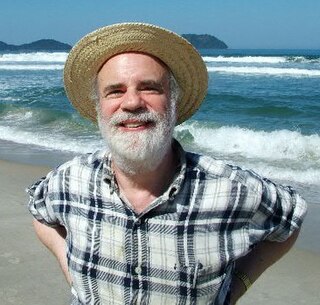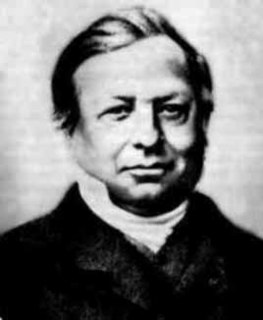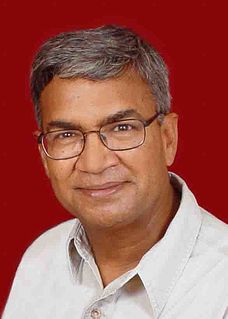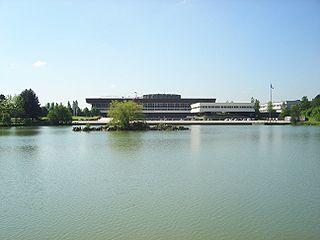External links
- David Makinson's website
- CREA Archived 4 December 2013 at the Wayback Machine , École Polytechnique, Paris
David Clement Makinson (born 27 August 1941), is an Australian mathematical logician living in London, England.
Makinson began his studies at Sydney University in 1958 and was an associate of the Libertarian Society and Sydney Push. He is a Visiting Professor in the London School of Economics, University of London, and an associate member of the Centre de Recherche en Epistémologie Appliquée (CREA), École Polytechnique, Paris. He has held professorial rank positions in King's College London, University of London and in the American University of Beirut, Lebanon. From 1980 till 2001 he worked for UNESCO, Paris.
David Makinson is highly regarded for his work on belief revision, uncertain reasoning, and modal logic. While studying in Oxford University (Worcester College) for his D.Phil under the supervision of Michael Dummett, he identified the preface paradox. In belief revision he created the AGM account of theory change with Carlos Alchourrón and Peter Gärdenfors. In modal logic and other non-classical logics, he showed how to establish completeness results by adapting the method of maximal consistent set. In 1969 Makinson discovered the first simple and natural propositional logic lacking the finite model property. Together with Leon van der Torre he developed input/output logic.

Saul Aaron Kripke was an American philosopher and logician in the analytic tradition. He was a Distinguished Professor of Philosophy at the Graduate Center of the City University of New York and emeritus professor at Princeton University. Since the 1960s, Kripke has been a central figure in a number of fields related to mathematical logic, modal logic, philosophy of language, philosophy of mathematics, metaphysics, epistemology, and recursion theory. Much of his work remains unpublished or exists only as tape recordings and privately circulated manuscripts.

Joseph Louis Gay-Lussac was a French chemist and physicist. He is known mostly for his discovery that water is made of two parts hydrogen and one part oxygen, for two laws related to gases, and for his work on alcohol–water mixtures, which led to the degrees Gay-Lussac used to measure alcoholic beverages in many countries.

Gaspard Monge, Comte de Péluse was a French mathematician, commonly presented as the inventor of descriptive geometry, technical drawing, and the father of differential geometry. During the French Revolution he served as the Minister of the Marine, and was involved in the reform of the French educational system, helping to found the École Polytechnique.
Arthur Norman Prior, usually cited as A. N. Prior, was a New Zealand–born logician and philosopher. Prior (1957) founded tense logic, now also known as temporal logic, and made important contributions to intensional logic, particularly in Prior (1971).

The École Polytechnique is one of the 204 French engineering schools accredited as of 1st September 2020 to award a diplôme d'ingénieur. It is one of the most prestigious and selective grandes écoles in France. It is also along with l'École spéciale militaire de Saint-Cyr, l'École de l'air, l'ENSTA Bretagne, l'École des officiers de la Gendarmerie nationale, l'École navale and l'École de santé des armées — one of the seven major French military schools. It is a French public institution of higher education and research in Palaiseau, a suburb south of Paris. The school is a constituent member of the Polytechnic Institute of Paris.

Joseph Liouville was a French mathematician and engineer.

Ruth Barcan Marcus was an American academic philosopher and logician best known for her work in modal and philosophical logic. She developed the first formal systems of quantified modal logic and in so doing introduced the schema or principle known as the Barcan formula. Marcus, who originally published as Ruth C. Barcan, was, as Don Garrett notes "one of the twentieth century's most important and influential philosopher-logicians". Timothy Williamson, in a 2008 celebration of Marcus' long career, states that many of her "main ideas are not just original, and clever, and beautiful, and fascinating, and influential, and way ahead of their time, but actually – I believe – true".

David Kellogg Lewis was an American philosopher who is widely regarded as one of the most important philosophers of the 20th century. Lewis taught briefly at UCLA and then at Princeton University from 1970 until his death. He is closely associated with Australia, whose philosophical community he visited almost annually for more than 30 years.

Bernard Chazelle is a French-American computer scientist. He is currently the Eugene Higgins Professor of Computer Science at Princeton University. Much of his work is in computational geometry, where he is known for his study of algorithms, such as linear-time triangulation of a simple polygon, as well as major complexity results, such as lower bound techniques based on discrepancy theory. He is also known for his invention of the soft heap data structure and the most asymptotically efficient known algorithm for finding minimum spanning trees.
Formal epistemology uses formal methods from decision theory, logic, probability theory and computability theory to model and reason about issues of epistemological interest. Work in this area spans several academic fields, including philosophy, computer science, economics, and statistics. The focus of formal epistemology has tended to differ somewhat from that of traditional epistemology, with topics like uncertainty, induction, and belief revision garnering more attention than the analysis of knowledge, skepticism, and issues with justification.

The Institut d'optique Graduate School, nicknamed SupOptique or IOGS, is one of the most prestigious French Grandes Ecoles and the leading French grande école in the field of Optics and its industrial and scientific applications, and a graduate school of the prestigious Paris-Saclay University and ParisTech.
The lottery paradox arises from Henry E. Kyburg Jr. considering a fair 1,000-ticket lottery that has exactly one winning ticket. If that much is known about the execution of the lottery, it is then rational to accept that some ticket will win.

In architecture, Rationalism is an architectural current which mostly developed from Italy in the 1920s and 1930s. Vitruvius had claimed in his work De architectura that architecture is a science that can be comprehended rationally. The formulation was taken up and further developed in the architectural treatises of the Renaissance. Eighteenth-century progressive art theory opposed the Baroque use of illusionism with the classic beauty of truth and reason.

Émile Michel Hyacinthe Lemoine was a French civil engineer and a mathematician, a geometer in particular. He was educated at a variety of institutions, including the Prytanée National Militaire and, most notably, the École Polytechnique. Lemoine taught as a private tutor for a short period after his graduation from the latter school.

Charles Hermite FRS FRSE MIAS was a French mathematician who did research concerning number theory, quadratic forms, invariant theory, orthogonal polynomials, elliptic functions, and algebra.
Evan Thompson is a professor of philosophy at the University of British Columbia. He writes about cognitive science, phenomenology, philosophy of mind, and cross-cultural philosophy, especially Buddhist philosophy in dialogue with Western philosophy of mind and cognitive science.

The Centre de Recherche en Épistémologie Appliquée — the Center for Research in Applied Epistemology — conducts research in humanities and the social sciences. It was founded in 1982 as a center for cognitive science and epistemology as part of the École Polytechnique in Paris.
Philippe N. Baumard graduated from the University of Aix-Marseille II, and Paris Dauphine University. Philippe Baumard is an organizational scientist who has held visiting professorships at New York University from 1997 to 1998, University of California, Berkeley from 2004 to 2007, Stanford University from 2008 to 2010. He is currently professor at the French National Conservatory of Arts and Crafts (CNAM), associate-researcher at École Polytechnique's Chair on Innovation & Regulation, Paris, and president of the scientific council of France's High Council for Strategic Education and Research

Anil K. Gupta is an Indian-American philosopher who works primarily in logic, epistemology, philosophy of language, and metaphysics. Gupta is the Alan Ross Anderson Distinguished Professor of Philosophy at the University of Pittsburgh. He is also a Fellow of the American Academy of Arts and Sciences. His most recent book, Conscious Experience: A Logical Inquiry, was published by Harvard University Press in 2019.

The Polytechnic Institute of Paris is a research university system located in Palaiseau, France. It consists of five engineering schools: École Polytechnique, ENSTA Paris, ENSAE Paris, Télécom Paris and Télécom SudParis.